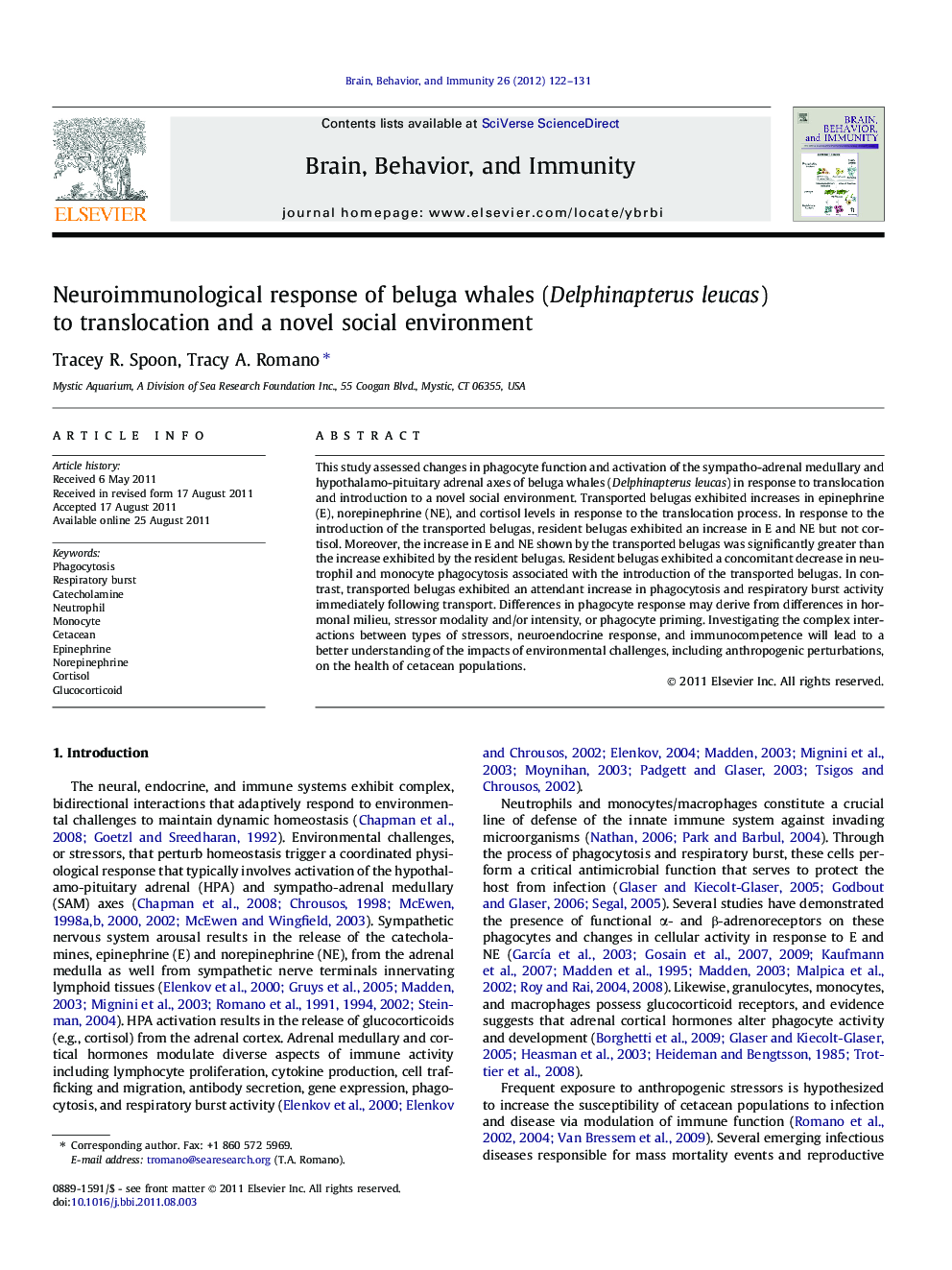| Article ID | Journal | Published Year | Pages | File Type |
|---|---|---|---|---|
| 922376 | Brain, Behavior, and Immunity | 2012 | 10 Pages |
This study assessed changes in phagocyte function and activation of the sympatho-adrenal medullary and hypothalamo-pituitary adrenal axes of beluga whales (Delphinapterus leucas) in response to translocation and introduction to a novel social environment. Transported belugas exhibited increases in epinephrine (E), norepinephrine (NE), and cortisol levels in response to the translocation process. In response to the introduction of the transported belugas, resident belugas exhibited an increase in E and NE but not cortisol. Moreover, the increase in E and NE shown by the transported belugas was significantly greater than the increase exhibited by the resident belugas. Resident belugas exhibited a concomitant decrease in neutrophil and monocyte phagocytosis associated with the introduction of the transported belugas. In contrast, transported belugas exhibited an attendant increase in phagocytosis and respiratory burst activity immediately following transport. Differences in phagocyte response may derive from differences in hormonal milieu, stressor modality and/or intensity, or phagocyte priming. Investigating the complex interactions between types of stressors, neuroendocrine response, and immunocompetence will lead to a better understanding of the impacts of environmental challenges, including anthropogenic perturbations, on the health of cetacean populations.
Highlight► This research is the first to show changes in neural immune measures in beluga whales in response to transport and a novel social environment.
